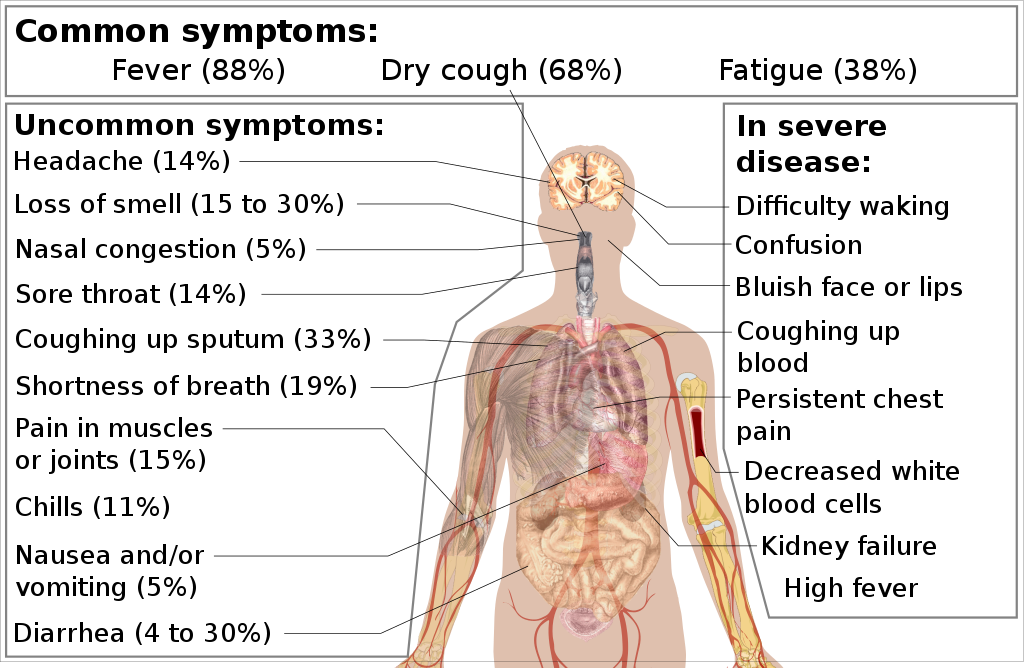All organs need an adequate blood supply all the time. To ensure a healthy blood flow, the endothelium or the blood vessels’ inner lining needs to stay healthy. Smoothness, elasticity, and the ability to repair itself and prevent unwanted blood clot formation are qualities of a healthy endothelium.
Read: The Magical Endothelium
As people get older age, lifestyles change. The once active become sedentary. Food becomes more affordable and accessible. Then the medical problems start. Obesity, hypertension, high cholesterol levels, and diabetes develop. Others start smoking. All of those can damage the endothelium and lead to heart disease, kidney problems, and even cancer.
This explains why obesity, diabetes, hypertension, cancer, and cardiovascular disease have a higher mortality rate. This was documented by studies made in China and the U.S.
Related: Who Dies From the Coronavirus?
Recently, Lancet published a description of the body’s cellular changes, particularly the blood vessels in patients with severe Covid-19 disease.
The authors are from the Department of Pathology and Molecular Pathology in Zurich, Switzerland. They described the findings from two deceased patients. A 71-year-old male with coronary artery disease, hypertension, renal transplant, and a 58-year-old woman was obese, hypertensive, and diabetic.
Another patient, a 69-year-old male, had severe Covid-19 but survived. He had respiratory and heart failure. On top of that, his intestines had to be removed because of ischemia or blood supply loss. Ischemic intestines have to be removed emergently because they can kill the patient.
The electron microscope findings from all patients showed diffuse viral infection of the endothelium. The heart, lungs, small intestines, and kidneys showed significant inflammation.
The lungs are infiltrated with many white blood cells and were congested with fluids. The cells of the liver were necrosed. Necrosis happens when an organ “dies” before the actual demise of a patient. It can be from a loss of blood supply or an overwhelming infection that contributed to the death.
The arteries of the heart and small intestines were inflamed to the point of obstructing the blood flow. Inflamed blood vessels are stiff and develop blood clots inside. The stiffness and clots make the heart work harder as it pumps against higher resistance.
The continuous demand for the heart to work harder can lead to a heart attack in someone with coronary artery disease.
The authors ended with the recommendation for antiviral drugs, anti-inflammatory, and anti-cytokine drugs, ACE-inhibitors, and statins to lessen the risk of arterial and organ damage.
Covid-19 risk can be reduced with lifestyle changes.
Covid-19 will be around for several months and maybe years. Diet and exercise have been recommended by the American Heart Association, American Diabetes Association, and American Cancer Society to lower cardiovascular disease, diabetes, and cancer.
Intermittent fasting under medical supervision works for diabetes mellitus and also for cardiovascular disorders.
Like common medical problems, the risk of dying from Covid-19 can also be lowered with lifestyle changes.
Don’t Get Sick!
Related readings:
-
How to Do Intermittent Fasting
-
Early Time-Restricted Feeding is Intermittent Fasting In Sync with the Circadian Rhythm
-
Will Fasting Make My Muscles Shrink?
-
How to be Active from Sedentary
-
21 Benefits of High-Intensity Interval Training
-
How Does Exercise Prolong Life?
-
Human Organs Targeted by Covid-19
-
What Happens to Critically-ill Covid-19 patients?
-
The Covid-19 can Attack the Brain.
-
Who Gets Cardiac Injury in Covid-19?
-
Covid-19 Can Lead to Heart Failure
-
Reference:
Zsuzsanna Varga, Andreas J Flammer, Peter Steiger, Martina Haberecker, Rea Andermatt, Annelies S Zinkernagel, Mandeep R Mehra, Reto A Schuepbach, Frank Ruschitzka, Holger Moch. The Lancet. Publisher: Elsevier. 21 April 2020
Image Credit: Covid-19 Symptoms by By Mikael Häggström, M.D.- Author info- Reusing images – Own work, CC0, https://commons.wikimedia.org/w/index.php?curid=88739442
© 2018 – 2020 Asclepiades Medicine, LLC All Rights Reserved
DrJesseSantiano.com does not provide medical advice, diagnosis, or treatment.
Easy to USE, Digital Timer Kitchen Timer, Magnetic Timer,Tanmalan(Black,1 Pack)
$4.99 (as of June 1, 2025 16:10 GMT -04:00 - More infoProduct prices and availability are accurate as of the date/time indicated and are subject to change. Any price and availability information displayed on [relevant Amazon Site(s), as applicable] at the time of purchase will apply to the purchase of this product.)Discover more from Don't Get Sick!
Subscribe to get the latest posts sent to your email.



























